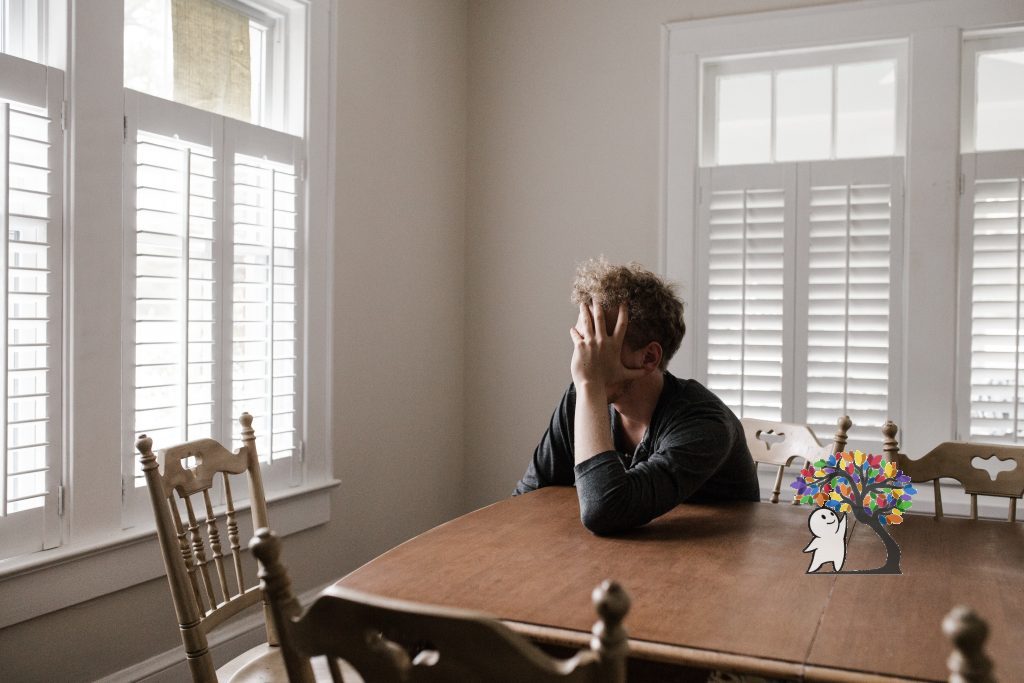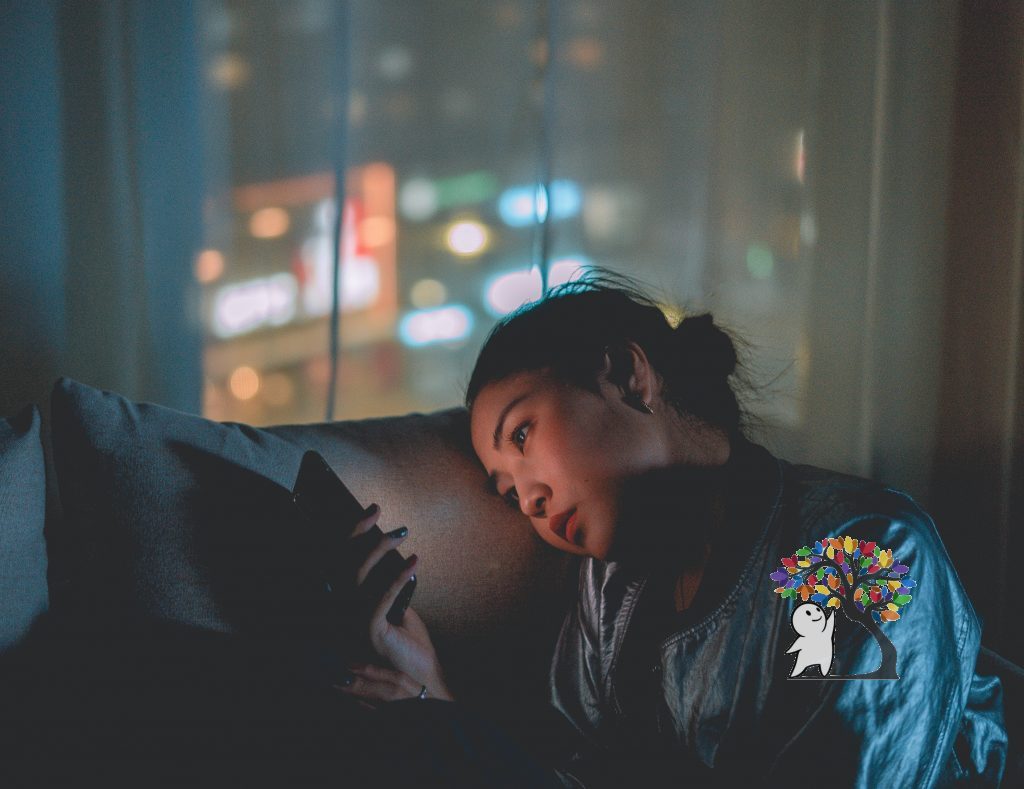9 Things Social Anxiety Makes You Do

Do you ever feel like all eyes are on you, just waiting for you to slip up or do something embarrassing? Do you always feel like this?
Constant worrisome thoughts like this are a trademark sign of social anxiety, which affects approximately 15 million people in the United States alone. Of course, it will look different in every individual, but social anxiety is generally defined by fear-like symptoms which are present during social situations. It’s important to note that social anxiety is much more than shyness, as well; shyness is considered a normal facet of one’s personality, whereas social anxiety is not (via The Social Anxiety Institute). Shyness does not cause the same level of distress and avoidance.
Because there are so many overlapping characteristics, it can be tricky to determine whether a behavior is a sign of social anxiety or not. In the end, it comes down to what is and isn’t normal for you. A licenced psychologist or other mental health professional can help you sort through any concerns you may have, but, if you have social anxiety, some of the items on this list will probably feel all too familiar. Here are 9 things that social anxiety makes us do:
1. Double checking the location and time … a couple times
If you find yourself repeatedly checking your phone to make sure you’re in the right place, you’re not alone. It can be terrifying for those with social anxiety to arrive late or walk into the wrong room, so double (or even triple) checking information is a must. Even if you know you’ve got the details right, it can bring you peace of mind just to make sure. It may be the difference between walking in with confidence or hesitation.
2. Rehearsing conversations ahead of time
While this may be a subconscious practice at first, many people who face social anxiety rehearse things they’ll say before they get the chance to say them. This often begins as imagining a future conversation or running through a list of important points to discuss. Some people find it more helpful to physically practice having a conversation as well. That being said, not everyone who practices talking necessarily has social anxiety. Memorization and practice are both common tools to aid anyone feeling nervous, whether the anxiety is about public speaking, talking to a specific person, or being social in general.
3. Avoiding phone calls

Even though it’s become a bit of a joke among millennials and Gen Z’ers who prefer to text, avoiding phone calls is actually a fairly common behavior for people with social anxiety. Psychologist Lindsey Scharfstein told Headspace, “Anxiety is typical for all of us. It’s a universal emotion that we can all relate to. For the most part, we know that individuals are not afraid of phones. They have phones in their office, backpack, purse … What they’re typically afraid of is the evaluation or judgment that may happen when they’re on a phone.” This may be why some people prefer to text instead of speak; the more distance one can put between themselves and the other person, the more comfortable they generally feel while interacting.
4. …and also faking phone calls
Although it’s safe to assume that phone calls are not something that people with social anxiety look forward to, they can also come in handy. Have you ever pretended to be in the middle of a call just to avoid talking to someone? Or maybe worn headphones to discourage others from approaching you? It can be a lot easier to act busy rather than to face the awkwardness of an unwanted conversation, so this can become a habit for people with social anxiety.
5. Constantly worrying how everyone sees you
According to the Anxiety and Depression Association of America, those with social anxiety disorder are often quite concerned about how they are perceived by others. The last thing they want is to come off as awkward or boring. You’ve likely felt this way at some point throughout life, whether it be the desire to fit in with friends or make a good impression on a potential employer. With social anxiety, however, this pressure to perform feels constantly heavy.
6. Feeling lonely even though you’re surrounded by people
Sufferers of social anxiety can share this trait with those who battle depression and other mental illnesses as well, so, unfortunately, a lot of people can relate to this isolating feeling. When social anxiety keeps you from being your truest self, it can be difficult to feel included at all. If you think you or someone you know may be experiencing social anxiety, please be patient. It’s so frustrating to be so close to others but not be able to connect with them in a comfortable way.
7. Clenching your teeth and other physical discomfort

In more extreme cases of social anxiety (or most other mental illnesses), the constant stress can even manifest as physical discomfort throughout the body. Many of the symptoms are similar to feeling nervous, such as sweating, flushing, and feeling shaky, according to Mayo Clinic. Over time, however, these issues can develop into chronic, even lifelong, health concerns. The Andrew Kukes Foundation for Social Anxiety provides a more thorough list of emotional, mental, and physical symptoms on their webpage here.
8. Obsessing over how you look
When you’re constantly worried about how others perceive you, you’re likely to be concerned with how you look as well. Think about how people with anxiety are shown in the media: plain, baggy clothes that hide as much of their body––and themselves––as possible. While for some this may not be far from the truth, the opposite may be true for others. If you have social anxiety you might spend an inappropriate amount of time and money on “fixing” your appearance, whether it be clothes, beauty, or body type. (We at Psych2Go are here to remind you that you are wonderful exactly how you are and, while it’s okay to want to change, you should never feel that you have to for the sake of others.)
9. Feeling more like yourself around the people you are comfortable with
Social anxiety might make you pretty picky about who you spend time with. In Triumph Over Shyness: Conquering Social Anxiety Disorder, Murray B. Stein, MD, MPH and John R. Walker, PhD discuss a behavior in children called selective mutism. This is when a child speaks and acts normally around select individuals but is completely silent around everyone else. This is a more extreme example, but it shows how those with social anxiety are more likely to relax and open up around people they already know and trust.



Responses